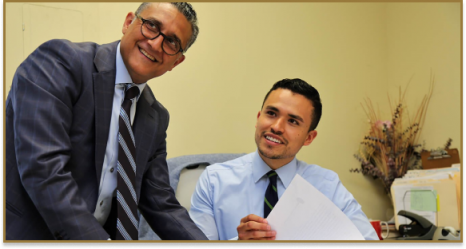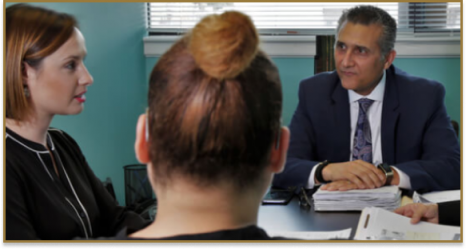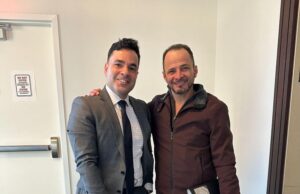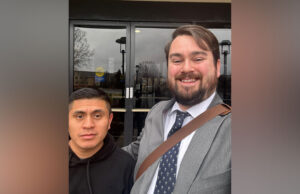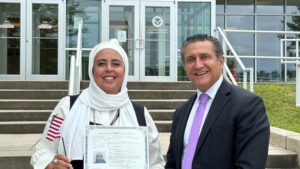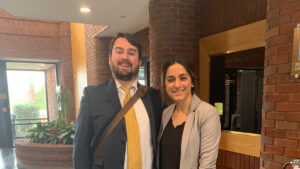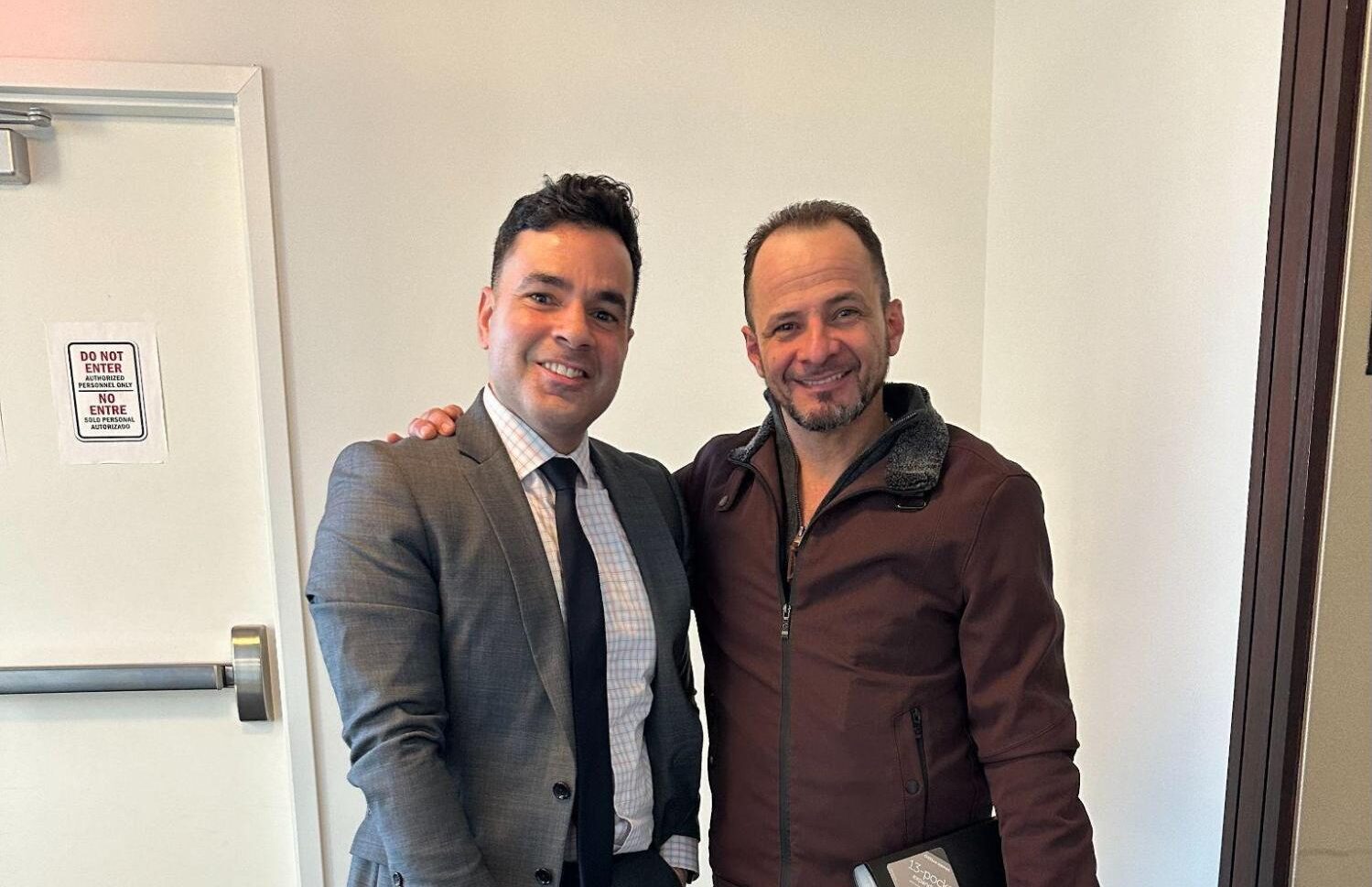E-2 Visa Lawyer
Fayad Law, P.C. helps investors obtain E-2 visas to relocate to the United States for business purposes.
E-2 Visas
Investment opportunities abound in the United States. Numerous foreign investors have relocated to the United States to benefit from various opportunities. If you live in a country with a trade and commerce treaty with America, you can apply for an E-2 visa. Once approved, you can relocate to the United States to direct and develop your investment. This will allow you to take a hands-on approach when investing in your business.
E-2 visas are complicated, so seeking legal counsel is vital. The Richmond E-2 visa lawyer at Fayad Law, P.C. has helped numerous men and women apply for and receive authorization. Reach out today to learn more about starting the E-2 visa process.
E-2 Visa Eligibility
You must meet the eligibility requirements to get an E-2 visa. These requirements include:
- Be a national of a country with a treaty of commerce with the U.S.
- Have a current investment or in the process of investing capital in a U.S. enterprise
- The desire to come to the U.S. to develop and direct the enterprise
It’s also important to note that the investment must be substantial.
Why Choose Fayad Law, P.C.
- Covers All Aspects of Immigration Law – We help clients with citizenship and naturalization, appeals and bonds, asylum, and other aspects of immigration law.
- Multilingual – We are fluent in English, Arabic, French, Russian, and Spanish, allowing us to provide legal services to immigrants from around the world.
- More than 20 Years of Experience – Our experienced legal team understands the immigration system, and we use our legal experience and insight when representing our clients. Our first-hand experience as immigrants also helps our clients navigate the complex immigration system.
- Personal Attention – As a boutique law firm, we limit our caseload to ensure we can provide personal attention to each client that we serve.
- Ethical and Sound Legal Counsel – Nash Joseph Fayad has a reputation for providing ethical and sound legal counsel and was appointed to serve as Special Counsel to the Commonwealth of Virginia for all immigration matters.
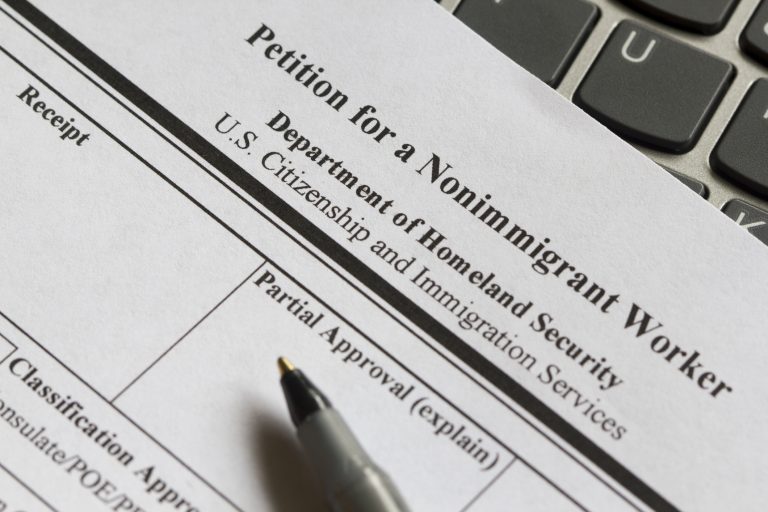
Tell Us About Your Case
Ask A Question, Tell Us What Happened or Request a Free Consultation
or fill out the short form below.
How To Apply For An E-2 Visa
Applying for an E-2 visa is a relatively complicated process. First, you need to invest or be in the process of investing in an enterprise. Then, you will need to complete and submit Form DS-160. If you intend to serve as an essential employee, executive, or manager of the enterprise, you will also need to fill out and submit DS-156E.
The U.S. government also requires that all applicants have a valid passport. If your passport expires less than six months before your intended departure, you must renew it. After submitting the documentation, the consular officer might contact you to request additional documents. When you use an E-2 visa lawyer in Richmond, you won’t have to worry about missing documentation or making mistakes. The attorney can work alongside you, ensuring that everything is properly filled out and all documentation is included.
How Long Does An E-2 Visa Last?
If you are approved for an E-2 visa, you may stay in the United States for up to two years. At the end of the initial period, your E-2 visa lawyer in Richmond can help you apply for a two-year extension. As long as you meet the requirements, you can continue to get two-year extensions on your visa.
However, to get an extension, you must have an intention to leave the country if your visa is terminated or expires. If there is concern that you will not depart, you might not be granted an extension. Because of its complicated nature, it’s wise to consult with an attorney through the entire process, including when getting an extension.
How Much Do You Need To Invest?
The United States government only states that the investment must be substantial. There is not an exact number to qualify for a visa. However, most successful applicants invest at least $100,000 in the enterprise, with many investing more. If you are investing in a start-up business, you might get approved for the visa if you invest less than $100,000. Various factors go into the investment amount, so speak to an experienced Richmond E-2 visa attorney for more information.
Who Can Come To The United States?
Your spouse and children under the age of 21 can come to the United States with you if you’re approved for an E-2 visa. Once you arrive in the United States, your spouse can apply for an Employment Authorization Card. Then, your significant other can also work in the country. Your children can also attend school while in America.
What Sets Fayad Law, P.C. Apart?

Firsthand Experience
as Immigrants

English, Arabic, French,
Russian, Spanish, and Farsi

Proven Track
Record of Success

Personal, One-on-One
Attention

You Stay Informed
at All Times

We Strive for Client
Satisfaction
FAQs - FREQUENTLY ASKED QUESTIONS
There are dozens of different types of visas available under the provisions of the Immigration and Nationality Act (INA), but they can all be placed in one of two categories: immigrant and nonimmigrant visas. The former is for individuals who are hoping to establish permanent residency with a green card and perhaps even to pursue the path to naturalization and citizenship. The latter is for those who are only planning a temporary visit to the United States, such as for the purpose of conducting business or attending school.
The INA sets limits on the number of people who will be permitted to immigrate to the United States each year using certain types of visas, while other visas are unlimited. Family immigration visas for the immediate relatives of U.S. citizens are available on an unlimited basis, while there are annual quotas set for the relatives of lawful permanent residents and extended family of citizens, with a maximum quota of 480,000. The number of employment immigration visas is limited to 140,000 per year.
Pathways to citizenship include service in the United States military and adoption, but a large percentage of all people who become citizens do so through the process of naturalization. The basic qualifications for naturalization include:
- Living in the U.S. as a permanent resident for 5 years (or 3 years for a spouse of a U.S. citizen)
- Being at least 18 years of age
- Living within the state where you will apply for citizenship for at least 3 months prior to the application date
- Being physically present in this country for at least half of the past 5 years
- Maintaining continuous residence in this country from the date you submit your application for naturalization
- Being able to read, write and speak English
- Have a basic understanding of U.S. government and civics
It is also necessary to supply evidence that you are a person of good moral character and are attached to the principles of the U.S. Constitution. We can assist you with proving these factors, as well as preparing your petition and helping you get ready for the tests.
In June of 2012, the Obama Administration directed the Department of Homeland Security (DHS) to begin applying a policy that is referred to as Deferred Action for Childhood Arrivals (DACA). Under deferred action, DHS is exercising discretion in its execution of the laws concerning deportation and removal of immigrants who are illegally present in the United States. Deferred action is not a change to the existing law, but is instead a change in the way that the law is being applied. You may qualify for relief under DACA if you were younger than 31 years of age on June 15, 2012, came to the U.S. before your 16th birthday, have continuously resided in this country since June 15, 2007 and are either currently in school or have already graduated from high school or earned your general education development (GED) certificate, among other criteria. With deferred action, you may be able to avoid being deported, though it does not grant any change of immigration status.
In its review of immigrant visa petitions, the U.S. Citizenship & Immigration Services (USCIS) weighs factors related to the ties that the prospective immigrant has in the United States and the reasons why he or she wants or needs to come to live in this country. For example, a family immigration petition will not be approved unless the foreign national has immediate relatives such as a spouse, mother or father, child or sibling already living here as a citizen or green card holder. An employment immigration petition is more likely to receive approval if the applicant has a job offer in this country and is coming to fill a position that cannot reasonably be filled from the local labor market. A foreign national who is fleeing persecution in his or her home country may be granted an immigrant visa as a refugee or asylee.
There are many strategies for challenging a removal action. If the proposed deportation is based on a criminal conviction, it may be possible to appeal the conviction in order to have it overturned. Another option is to petition for cancellation of removal, a type of immigration relief which is available to people who are of good moral character and whose deportation would subject a family member who is a citizen or permanent resident to extreme hardship. The key to success in stopping deportation is to take immediate action by hiring a Virginia immigration attorney from our firm as soon as possible. Contact us now at Fayad Law, P.C. for a confidential consultation and to let us get started on your case!
Fayad Law, P.C. maintains offices in Richmond and Fairfax, Virginia. We work with individuals, families, and businesses across the world, providing them with assistance in resolving the legal issues involved with helping their loved ones and employees to immigrate to the United States. We work directly with foreign nationals living abroad, guiding them through the process of obtaining immigrant and nonimmigrant visas for entry to the U.S.
Real Clients, Real Testimonials
Contact Us Today
Have questions about your rights? Ready to discuss your immigration case? Contact Fayad Law, P.C. now.
